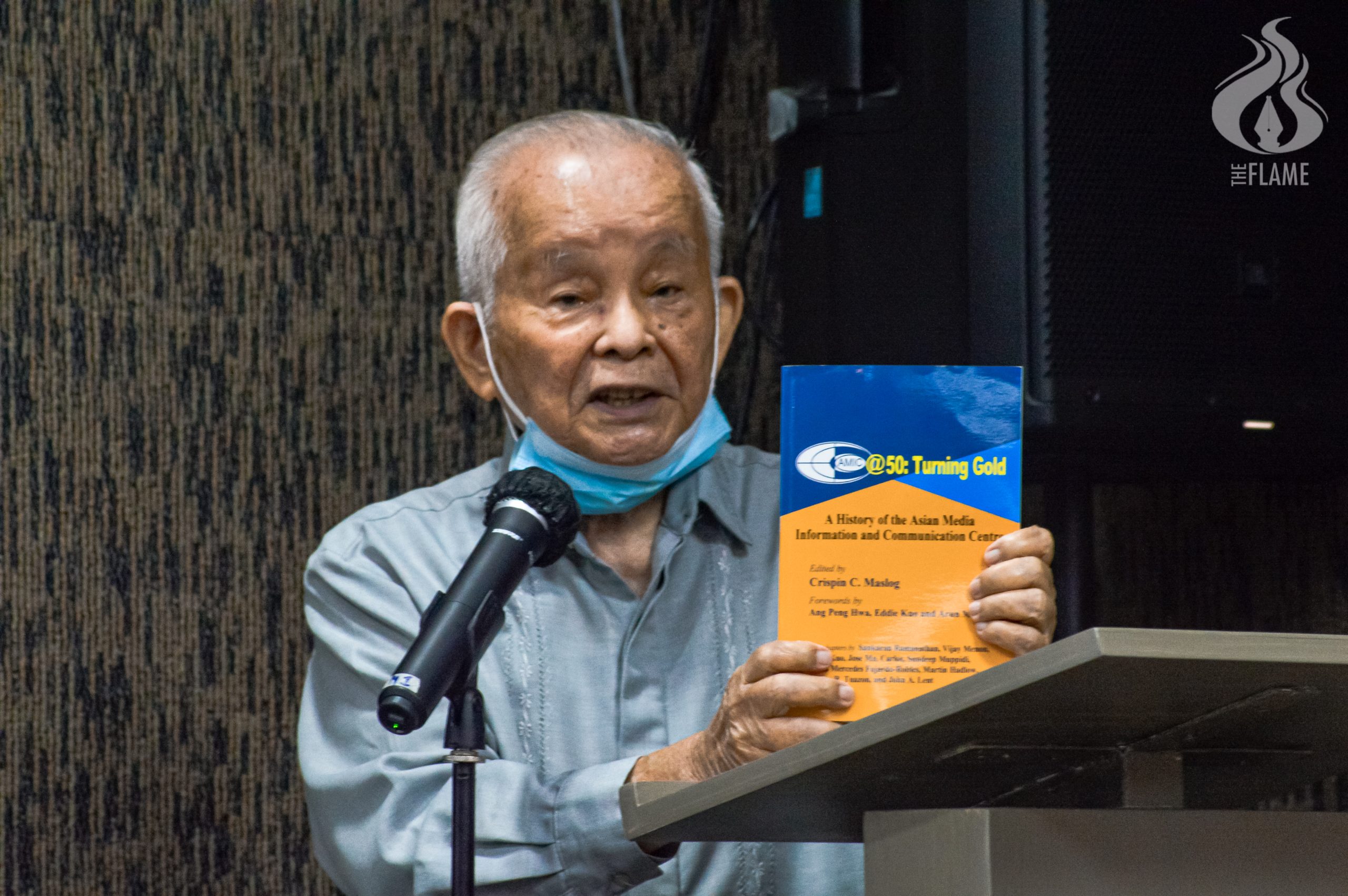
PHILIPPINE MASS communication studies should “rediscover their roots” in their country’s mode of communication, a veteran journalist said in an in-person lecture held Saturday, Dec. 10.
UST alumnus and veteran journalist Crispin Maslog, PhD said Filipinos “lost their ties to the past,” citing ‘Americanized’ Philippine mass communication studies.
“We have become so modernized, ‘Americanized’ that we are no longer able to relate to the old Filipino way of communication,” Maslog said.
The scholar also said the Filipinos’ Western-influenced perceptions roots back to colonialism in the East.
According to Maslog, the Dakota Model, which includes nine communication-centered components, has been the West’s influence on Indian communication: listening before speaking, rationality, acknowledgment of viewpoint, responding indirectly, non-confrontational, humor, the concept of “ikce wicasa” (common man), narrative/storytelling, and formal conclusion.
“Listening before speaking is an Indian way of speaking, which is the first component of the Dakota Model,” he explained.
Maslog spent two-and-a-half years in an American-Indian country where he studied the Indian communication style.
Asian Institute of Journalism and Communication President Prof. Ramon Tuazon echoed the veteran journalist’s remarks, saying educators should also promote to students the use of Asian communication models and theories.
The plenary session titled “Decolonizing Philippine Communication Scholarship” is organized by the UST Faculty of Arts and Letters’ communication and media studies department at St. Raymund’s Building and virtually via Zoom. F



